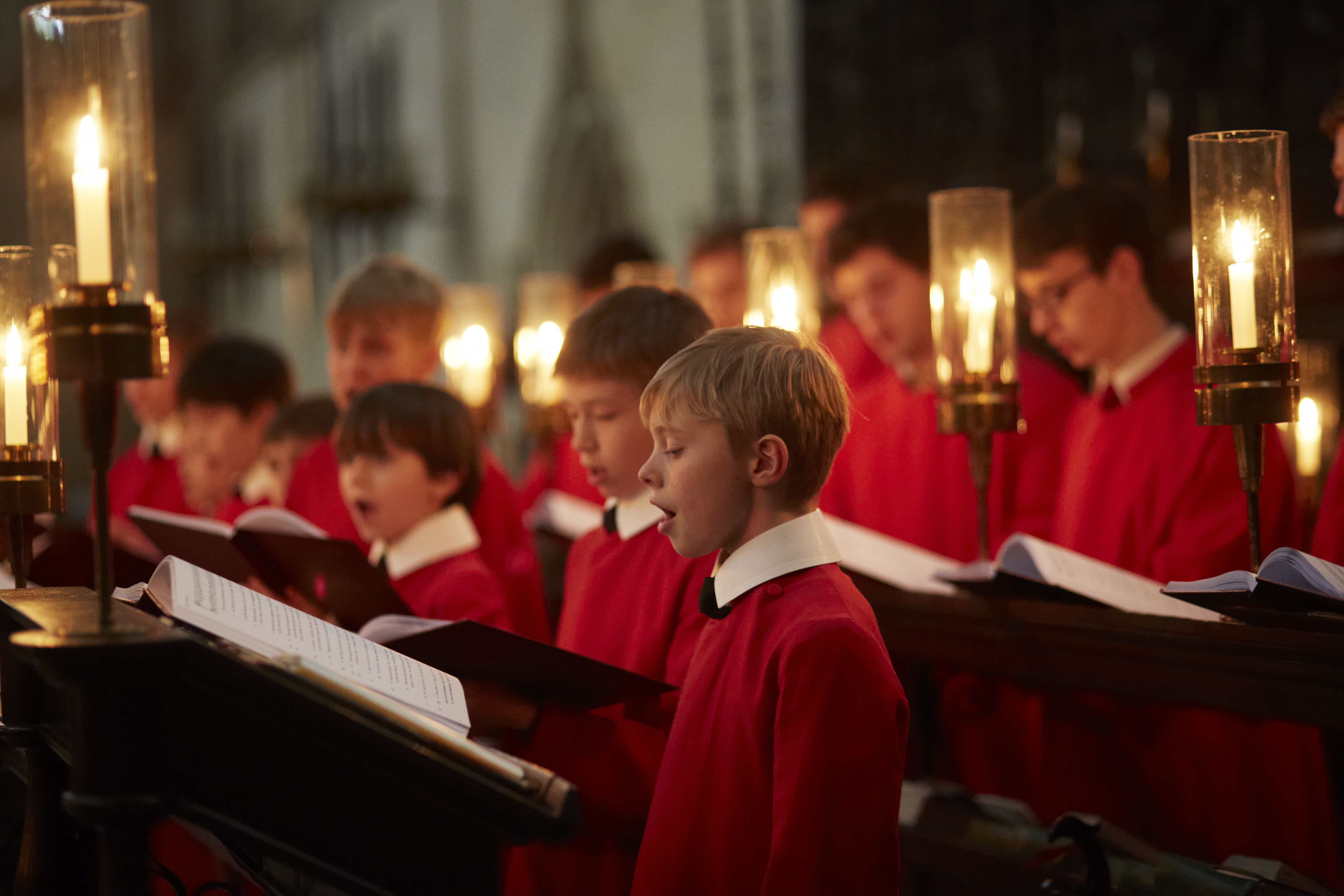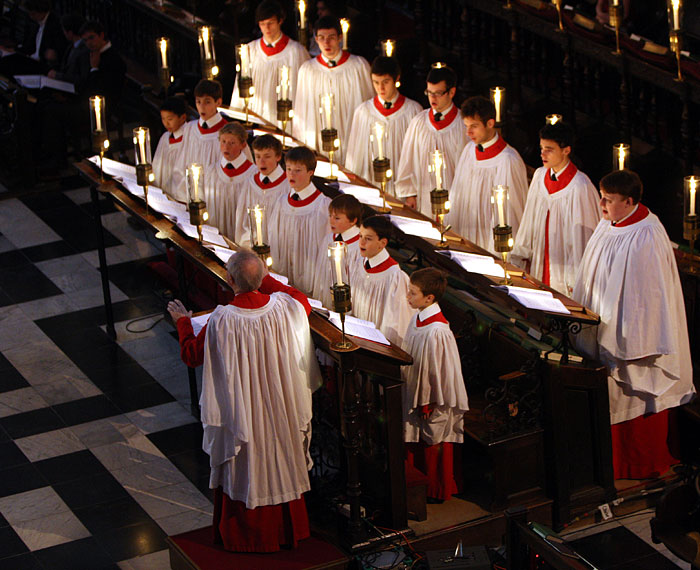Choir of King's College, Cambridge
The Choir of King 's College, Cambridge (also: King's College Choir, Cambridge ) is the choir of the educational institution of the same name and is one of the most respected and best-known representatives of the British choral tradition.
History
The choir was in 1441, founded by King Henry VI. , The founder of King's College to life in order to ensure the singing of the daily canonical hours and in the other services in the chapel of the college. This is still the main task of the choir.
Well-known composers have written commissioned works with liturgical music for the Collegium shelves, Herbert Howells and John Rutter.
Today the choir is directed by Stephen Cleobury. A large part of its worldwide recognition is based on the tracked annually by millions of listeners broadcast of the Festival of Nine Lessons and Carols on Christmas Eve.
Members
The Statutes of the College provides sixteen members of the choir. These are boys who get on the King's College School their education. Since the beginning of the 20th century, fourteen male undergraduates belong to the choir as Choral Scholars.
Former members of the choir (including Directors of Music and Organ Scholars ) join the King's College Choir Association.
Music Director
The choir is conducted by the Director of Music, is a Fellow of the College. In the past, these were:
Choral Scholars
The fourteen Choral Scholars are male students (typically undergraduates ) of the College. Choral Scholars must both meet the general admission requirements of the college and the Choral Trials to become a member of the choir.
Two of the Choral Scholars are charged with the role of a beater, a senior and a junior Beater ( traditionally are the Senior Choral Scholar, and his successor already selected ); both are usually also responsible for the management of the Collegium shelves. Both Choral Scholars beat (English: beat) the clock (or direct ) from within the choir stalls during the psalms and often the introitus of worship, even if the Director of Music is present.
Very rarely it happens that a lay cleric in place of a Choral Scholar is appointed, mostly because one vacancy has arisen unexpectedly: for example, if a student has been provisionally included in college ( with the condition subsequent to achieve certain exam grades yet) and recording conditions are not met in a row. Such lay clerics have the same status as a Choral Scholar in principle. The active since the establishment of the Choral Scholars few lay clergy were very often Choral Scholars, who agreed to stay another year beyond their studies.
The Choral Scholars occur in their free time collectively as Collegium shelves (Latin for 'King 's College ') on. Under this name they sing a wide range of music that was written for men's voices, from early music through to Barbershop (the latter have often been adapted exclusively for the group by current / former Choral Scholars ).
Groups that have emerged from the Choral Scholars
Various singing groups have emerged from the Choral Scholars:
- Collegium shelves, consisting of the current Choral Scholars
- The King's Singers (1968 -present)
- Pange Lingua, headed by Berty Rice ( 1990s)
- Polyphony (1986 -present)
- The Scholars ( 1960 -present - also known as The Scholars Baroque Ensemble known)
Well-known former members
- Orlando Gibbons - Composer
- Michael Chance - counter tenor
- James Gilchrist - Tenor
- Richard Farnes - Music Director, Opera North
- Stephen Layton - Conductor
- Edward Gardner - conductor, English National Opera
- Stephen Varcoe - Baritone
- Robert Tear - tenor
- Andrew Kennedy - tenor (winner of the Rosenblatt Song Prize at Cardiff Singer of the World 2005)
- Andrew Davis - Conductor
- David Willcocks
- Simon Preston - Organist and Conductor
Organ Scholars
The organ is played by two Organ Scholars, who are like the Choral Scholars, also students of the college. Should the Director of Music missing for some reason, one of the Organ Scholars for the choir 's management. There were only very rarely candidates for the post of Organ Scholars; so far all came always successful applications of male candidates. Those who wish to seek an organ scholarship to Cambridge enjoys an exception to the rule of the UCAS application system, which otherwise bans dual application both at Cambridge and at Oxford University.
Tours
The choir often goes on tours: usually the longer tours in the summer and during the Christmas holidays, but there are also shorter trips throughout the year. Previous tours have included:
Recordings
More recent recordings that have appeared in the EMI Classics label include:
Since 2012 the choir released its recordings in a separate label. The first release was a double CD with a cross -sectional micrographs of the Festival of Nine Lessons and Carols from the years 2007-2012, which appeared in October 2012. In spring 2013, a recording of Mozart's Requiem appear.









